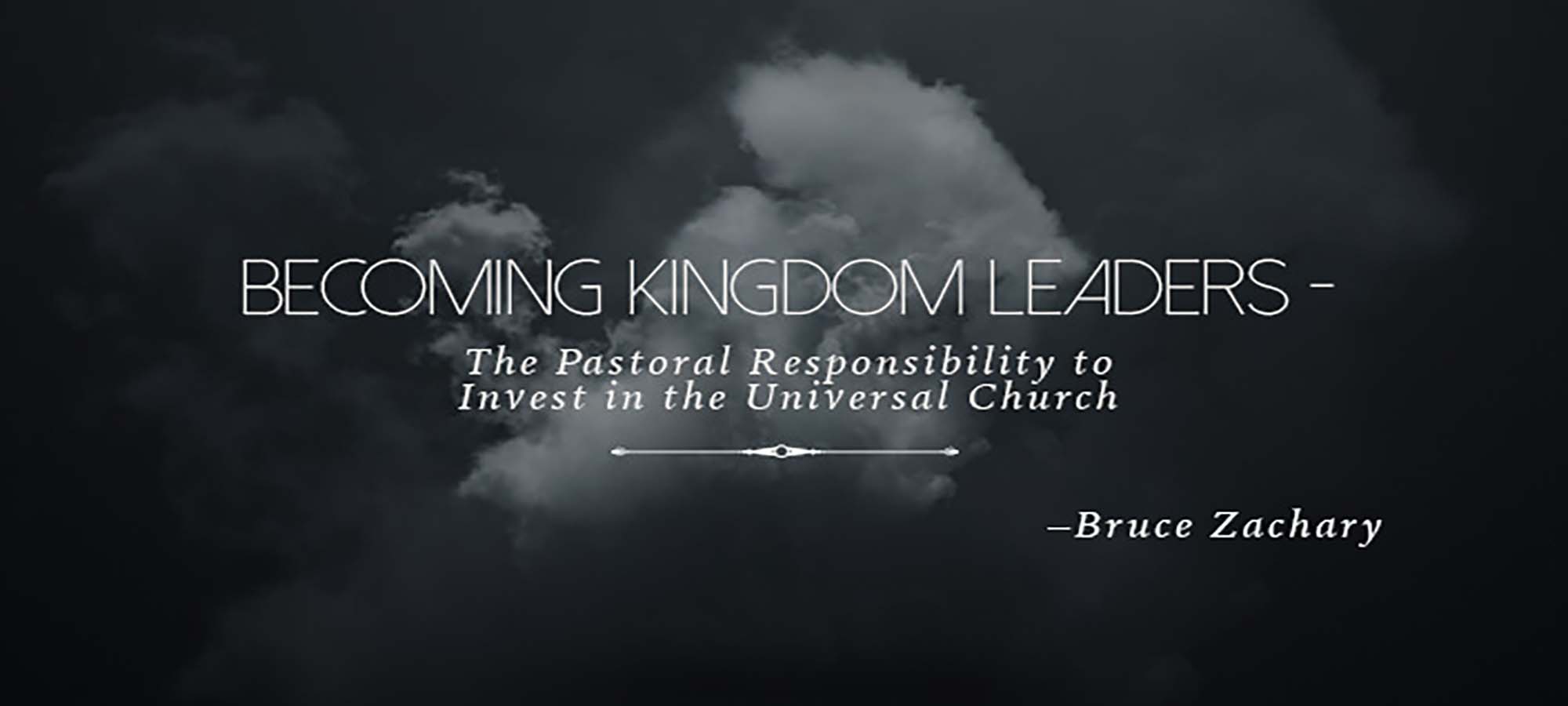
One of the greatest needs in the Church today is for Kingdom leaders. Church leaders’ desire to build up the local church is certainly noble and critical to mission. However, it’s important not to focus on our immediate community to the extent that it overshadows God’s greater Kingdom. The purpose of this article is not to swing the pendulum from one extreme to another, but to move towards a healthier balance between the local church and the broader Kingdom.
Have you ever met a church leader who seems focused on building the local church? Of course you have. Almost all of us have a desire to equip and edify the local church. Have you ever considered how the focus on the development of the local church could potentially cause us to neglect the greater Kingdom? Too much focus on the local church is an obstacle to healthy advancement of Christ’s Kingdom when resources are heavily allocated to one small piece of the puzzle, forgetting the big, Kingdom picture. Kingdom initiatives that transcend the local church include: global missions, church planting, para-church ministries, engaging or reaching un-churched people groups, developing leaders for Kingdom service beyond the local church and benevolence, especially beyond the local church. Anecdotally, the percentage of resources that are used for these Kingdom initiatives in the typical local church is often very small. We need to realize that the tendency of church leaders to focus on developing the local church can cause us to neglect the greater Kingdom. The transition to Kingdom leadership is a process that every local church needs to engage in. I’d like to propose a four-fold transition process.
Assess
Resources need to be allocated towards Kingdom initiatives in order to fulfill the Kingdom calling of the Church beyond the local church. Yet, we rarely evaluate how our resources of time, talent, and treasure are actually committed to Kingdom works. The first step is to take an honest assessment of how resources are allocated. Examine the church budget to see how funds are committed to distinctly Kingdom initiatives beyond the local church. Then consider how people, resources of time and talent are designated for Kingdom works beyond the local church. In other words how are people empowered, encouraged and engaged in Kingdom initiatives? A reasonable goal would be to work towards ten percent, and then consider moving beyond that.
Align
Consider the question, “What has God called us to do as a local church to advance the Kingdom beyond the local church?” Each local church will have a sense of particular areas of calling. Your church may feel compelled to do global missions, church planting, reaching unengaged or unreached people groups, or a particular para-church ministry. It is also very likely that you feel a call to multiple initiatives. We have found it helpful to ask, “If money wasn’t an object and there were plenty of talented people to spare, what would we like to do for God’s Kingdom?” Take the time to determine where you believe God has called you to be as a local church in your role as Kingdom leaders.
Accountability
Create a plan to designate resources and prioritize the Kingdom initiatives to move towards the desired destination. This will likely involve shifts in the budget and vision to mobilize people and financial resources. There will likely be resistance to the shift because local initiatives will be perceived as being threatened. When faced with the challenge of perceived competition for resources, make the Kingdom initiatives the priority and trust God’s leading and provision.
Assist
Engage the help of other leaders who you perceive as having effectively made the shift from local church to Kingdom leadership. Identify mentors who can help you and your leadership team to communicate and to navigate through the challenges. Then as you transition to Kingdom leadership offer to assist other church leaders in the process.






